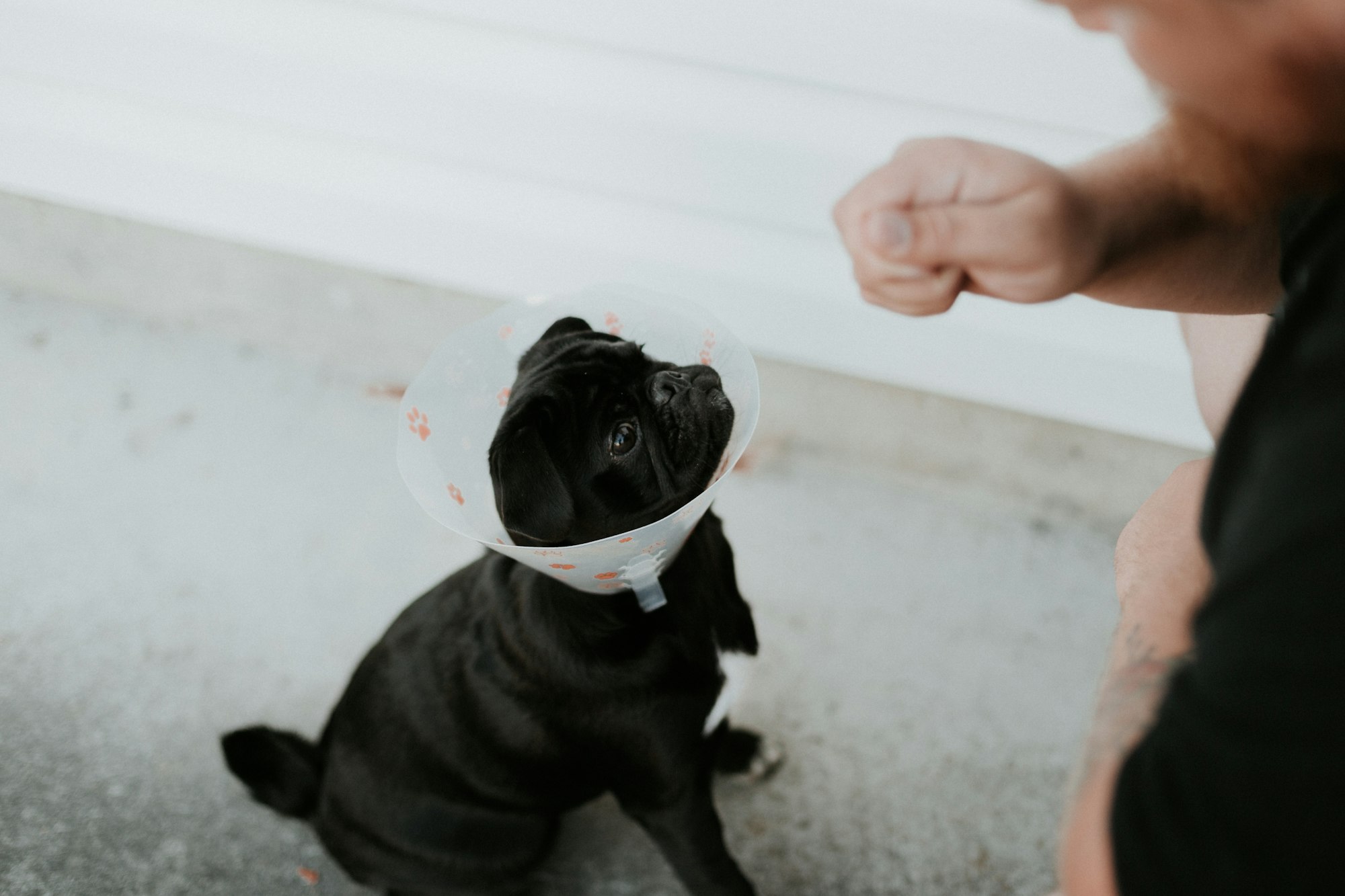You've decided to become a responsible pet owner. After all, not only does neutering play a role in controlling the canine population, but it can also bring about several health and behavioral benefits for your dog. However, the million-dollar (or perhaps a few hundred) question is: How much does it actually cost to neuter your canine?
The Basics of Neutering
Before we dive deep into the pockets of the matter, let’s set the scene. Neutering, for the uninitiated, refers to the surgical removal of a male dog’s testicles. It's a common procedure that helps prevent unwanted litters and can even curb undesirable behaviors. But, just like any surgical procedure, it's essential to factor in the associated costs.
Breaking Down the Expenses
Vet Consultation and Preliminary Tests
Before the neutering procedure, you’ll likely need a vet consultation. This initial step ensures that your furry friend is in optimal health. Think of it as a routine checkup for your car before a major overhaul.
Sometimes, this check-up might unearth certain health concerns that need addressing before the big surgery. For instance, Miniature bull terrier breeds might need extra care due to their unique anatomical structure.
The Actual Neutering Procedure
The core of the expense, unsurprisingly, is the surgery itself. Depending on your location, the facility, and the dog's size and age, prices can vary. For instance, neutering a smaller breed like the bichon maltese might be less expensive compared to larger breeds.
Post-surgery Care
Post-operation care is as crucial as the surgery. Your dog will need some recovery time, pain medications, and a follow-up appointment to ensure everything's healing correctly.
On a side note, did you know that can dogs eat cantaloupe? Indeed, it can be a healthy treat during their recovery period, packed with vitamins and hydration. Just ensure no seeds are fed, as they might pose a choking hazard.
Factors Affecting the Costs
Geographical Location: Just like real estate, location matters. The cost of neutering in downtown New York might differ significantly from a small town in Montana.
Age and Health of the Dog: Older dogs or those with health issues might need extra care. The health of the dog can influence the cost. Speaking of health, can dogs have cucumbers? Absolutely! They make a crunchy treat that’s good for their teeth and hydration.
The Facility: Is it a high-end clinic or a budget-friendly one? The amenities and expertise can affect your bill. Specialized clinics or those catering to specific breeds, like determining are huskies wolves or not, might charge differently.
Additional Procedures: Sometimes, neutering can be combined with other procedures. For instance, if your dog has a dental issue, it might make sense to tackle both simultaneously.

Real-Life Example
Let's narrate the story of Lucy, a dog owner who recently had her pet, Max, neutered. Lucy lives in a suburban area, and Max is a mixed breed, somewhere between a lab and a retriever. Her local vet provided a package deal – consultation, the surgery, post-op meds, and a follow-up appointment for $300.
However, Lucy's friend, who owns a Miniature bull terrier, was quoted $450 at a swanky clinic in the city. This just goes to show that several factors can swing the pendulum of expense.
Other Considerations
While on the topic of dogs and their quirky behaviors, you might have seen some dogs – regardless of whether they've been neutered or not – exhibit a funny habit. Why do dogs bury their body, you wonder? It's an age-old instinct! In the wild, dogs did this to hide from predators.
Myths and Misconceptions
Let's address some of the myths surrounding neutering. First and foremost, neutering does not change your dog’s fundamental personality. Sure, it can curb some aggressive tendencies or roaming behaviors, but your canine companion will still be the same ball of love post-surgery.
Neutering and Weight Gain
A widespread myth is that neutering can cause weight gain. While neutered dogs might have a slightly decreased metabolic rate, any significant weight gain is usually due to overfeeding and lack of exercise. Just like humans, dogs need a balanced diet and regular physical activity.
Remember, you might want to find out if certain foods are safe for dogs before feeding them. For instance, while can dogs eat cantaloupe and cucumbers, certain foods like grapes and chocolate are toxic to them.
The "Right" Age to Neuter
Another point of contention is the "right" age to neuter. Traditionally, many vets recommended neutering dogs around six months. However, recent research suggests that for some breeds, waiting until they are a bit older might be beneficial. Always consult with your vet to determine the optimal age for your specific breed and individual dog.

Benefits Beyond the Cost
While we've mostly discussed the monetary side of things, it's vital to understand the broader benefits of neutering:
- Population Control: With millions of dogs entering shelters each year, neutering is a responsible step towards controlling the canine population.
- Health Benefits: Neutering can prevent certain types of cancers and infections in male dogs.
- Behavioral Perks: It can help reduce aggressive behaviors, marking tendencies, and the urge to roam in search of a mate.
The Social Responsibility
Neutering is more than just an individual decision—it's a societal one. By opting to neuter your canine, you're not just taking a step for their wellbeing, but you're also contributing positively to the community. Fewer stray dogs mean less pressure on shelters and fewer cases of dog attacks or road accidents involving strays.
Hidden Expenses and Ways to Save
Navigating the world of pet care expenses can sometimes feel like wandering through a maze. Beyond the visible neutering costs, there might be some hidden expenses that dog owners should anticipate.
Unexpected Medical Needs
As with any surgical procedure, complications, although rare, can arise. From infections to allergic reactions to anesthesia, it's a good idea to have a contingency budget. This ensures that if Max or Bella needs extra medical attention, you're financially prepared.
Cones and Recovery Wear
Post-surgery, many vets recommend that dogs wear cones to prevent them from licking or biting the surgical area. While some clinics might include this in the neutering package, others might charge separately. There are also alternative recovery wears available in the market that might be more comfortable for some dogs.
Boarding and Care
If you're someone with a hectic schedule or are frequently away from home, post-operative care for your pet might require professional boarding services. These can add to the overall expense, but they ensure your canine receives round-the-clock attention during their recovery.
Making Neutering Affordable
The costs can add up, but there are several ways to make neutering more affordable:
1. Spay and Neuter Clinics
Many communities offer low-cost spay and neuter clinics, driven by the mission to control the pet population. They often provide services at a fraction of the cost you'd incur at private vet clinics.
2. Veterinary Schools
Some veterinary schools offer reduced prices for surgeries performed by their students (under the supervision of experienced veterinarians, of course). It's a win-win: students gain practical experience, and you get a more affordable rate.
3. Pet Insurance
Investing in pet insurance can often help offset some of these surgical costs. While there's a monthly or yearly premium, the coverage can come in handy for both routine procedures and unexpected medical issues.

4. Payment Plans
Some vet clinics understand that neutering expenses can be a burden. They might offer payment plans, allowing you to spread out the cost over several months.
A Broader Perspective
Every decision we make for our furry friends stems from love and care. From understanding if bichon maltese breeds need special attention, to the peculiarities of why dogs have certain habits like burying their body, to the intriguing debate about are huskies wolves—it's all about ensuring the best for our companions.
In the grand scheme of things, the decision to neuter is a significant one. Beyond the immediate costs and benefits, it speaks to a commitment to responsible pet ownership. It’s not just about preventing unplanned litters, but also about ensuring a healthier, happier life for your canine companion.
The Ripple Effect: Beyond Just Your Pet
While neutering predominantly impacts your pet, the decision has implications that echo throughout the broader canine world.
The Ethical Impact
Animal shelters across the world grapple with high intake numbers every day. Many of these are strays or unwanted litters resulting from pets that haven’t been spayed or neutered. By choosing to neuter your dog, you indirectly reduce the strain on these shelters, allowing them to allocate resources more effectively.
Environmental Considerations
The increasing canine population isn't just an animal welfare issue; it's an environmental one too. Stray dogs can affect local fauna, disrupt ecosystems, and even contribute to pollution through their waste. Responsible neutering can play a part in mitigating such impacts.
Care Beyond Neutering
As we've delved into the intricacies of neutering, it's essential to remember that it's but one aspect of comprehensive canine care. Nutrition, exercise, regular vet check-ups, and a loving environment are equally crucial.
Diet and Nutrition
Feeding your dog might seem straightforward, but there's a world of knowledge to explore. For instance, while it's safe for dogs to munch on treats like cucumbers or cantaloupe, some human foods can be toxic. And then there are peculiar dog habits to navigate: why do dogs bury their body or seem fascinated with certain fruits? Your journey with your pet is an ongoing learning experience.

Mental and Physical Stimulation
Whether you have a spirited Miniature bull terrier or a contemplative bichon maltese, every dog needs both mental and physical stimulation. Regular walks, play sessions, and even puzzle toys can keep your canine both physically fit and mentally sharp.
Building Bonds
Beyond the tangible aspects of care lies the intangible: the bond you share with your pet. Whether you're unraveling mysteries like are huskies wolves or simply enjoying a lazy afternoon together, every moment strengthens the bond you share with your canine companion.
The Future of Canine Care: FI Dog Collars
In an ever-evolving world, technology often intersects with various facets of our lives — and the realm of pet care is no exception. As we've discussed the intricacies of neutering and broader canine care, it's essential to highlight innovative solutions that are transforming the way we look after our pets. Enter the FI dog collar, a revolutionary tool that brings the future to our fingertips.
Monitoring Post-Neutering Recovery with FI
After a procedure like neutering, it's vital to monitor your dog's activity levels and overall wellbeing. The FI dog collar, with its advanced tracking technology, can help owners ensure their pets are not overexerting themselves during the recovery phase. This smart collar provides real-time activity data, allowing you to gauge if your canine companion is resting adequately or if they're unusually inactive, which could be a sign of post-operative complications.
Diet, Nutrition, and FI Insights
As we've touched upon the significance of diet and nutrition, the FI dog collar's activity tracking can also play a pivotal role here. By monitoring your dog's activity levels, you can adjust their calorie intake accordingly. Wondering if your Miniature bull terrier burnt off that extra treat? Or if your bichon maltese had enough exercise for the day? The insights provided by the FI collar can guide you in tailoring their diet to match their activity levels.
Mental and Physical Stimulation
Every dog, whether it's a playful husky or a curious terrier, requires both mental and physical stimulation. With the FI dog collar's geofencing feature, you can safely let your dog roam in designated areas, knowing that you'll be alerted if they wander too far. This peace of mind allows for more off-leash time, ensuring they get the mental stimulation from exploring and the physical benefits of free play.
Building Bonds with FI Adventures
Beyond just tracking, the FI dog collar lets you document your adventures with your canine companion. Whether you're investigating the age-old debate of are huskies wolves on a mountain hike or merely enjoying a sunset stroll in the park, the FI collar lets you capture these moments, creating lasting memories of the bond you share.
Conclusion:
In the multifaceted world of canine care, decisions range from the ethical and financial implications of neutering to the intricacies of diet and nutrition. As we navigate these choices, tools like the FI dog collar provide invaluable insights, enhancing our pets' overall wellbeing. Whether monitoring post-operative recovery, tailoring nutrition based on activity, or cherishing shared adventures, technology empowers us to offer optimal care. Ultimately, whether pondering the genetic mysteries of huskies or deciding on surgical procedures, our primary goal remains unwavering: to provide a loving, informed, and enriched life for our loyal canine companions.